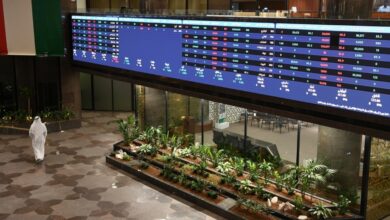Avoiding headaches from fasting

Headaches, a common disorder among people everywhere, can arise from a number of external or internal factors, including from going without food for extended periods such as during the traditional dawn-to-dusk fasting in the holy month of Ramadan.
Fasting headache, which doctors attribute to a disorder in the body’s homeostasis, is a non-pulsating pain that can be diffused over a wider area, or limited to the frontal region of the brain. Fasting headache usually occurs after eight or more hours of fasting, with the likelihood and intensity of a headache occurring increasing in direct proportion to the duration of the fast.
Hypoglycemia, or low blood sugar levels, as well as caffeine withdrawal have in particular been implicated as causative factors of fasting headache, but it could also arise from other causes and much remains to be understood about this topic. On the plus side, a fasting headache is not lasting and can be alleviated by consuming some form of nourishment.
Moreover, as the body becomes conditioned to the extended fasting period , the fewer fasting headaches occur. This could explain why people who have headaches at the start of the month of fasting,cease to have such headache attacks after several days of fasting. However, if the headache continues to persist it is best to seek medical advice..
Several causative factors have been attributed to fasting headache, these include:
Hypoglycemia: One possible cause of fasting headaches is low blood sugar. For certain individuals with a specific genetic makeup, even a slight fluctuation in blood sugar levels may impact pain receptors in the brain, leading to heightened feelings of pain and headaches during fasting.
However, some scientists disagree with this argument. They note that glycogen serves as the body’s glucose reservoir. In healthy individuals, liver glycogen levels can sustain normal blood sugar levels for up to 24 hours.
They also note that non-pulsating headaches are not indicative of a hypoglycemic episode, which typically warrants emergency medical attention.
Caffeine withdrawal: Abstaining from the regular dose of caffeine during Ramadan fasting has been associated with headaches, especially among people who normally consume several cups of coffee a day. These pains typically begin to occur around 18 hours after the last intake of caffeine. However, even people who do not regularly consume coffee can still experience fasting headaches, which would indicate that caffeine withdrawal is on its own not the primary cause of fasting headaches.
Dehydration, stress and tension: Fasting headaches could also be attributed to imbalances in body fluids, dehydration, and stress induced by food deprivation. Some studies have indicated that consuming ample fluids during the early morning suhoor meal, can help reduce fasting headaches.
Changes in daily routine: The sudden and sharp alterations in dietary habits, sleep patterns and meal times during Ramadan fasting can confuse the body, leading to headaches.
Disruptions to the body’s biology and internal clock could negatively impact brain activity and thereby trigger headaches. Staying up late and disrupting the sleep routine by waking early during Ramadan are actual headache triggers, especially for those suffering from headaches and epilepsy, whether they are fasting or not.
Nutritionists, dieticians and other healthcare personnel suggest several recommendations to avoid injury and prevent headaches during the month of Ramadan.
These include:
Cut down on the intake of coffee and other stimulant beverages, and instead, stock up on ample water and other non-diuretic drinks during the suhoor meal.to help keep the body hydrated throughout the fasting period.
Consume a nutritious diet rich in fiber and protein to stabilize blood sugar levels and promote long-lasting feelings of fullness and energy. Also, gradually shift your sleep schedule. For instance, it is advisable to delay bedtime by two hours each day, or maintain your regular bedtime and wake up at dawn to eat the suhoor meal.
If fasting headaches pose a challenge for you, seek medical advice regarding headache prevention through medication. Given that fasting headaches are more prevalent among individuals with a history of migraines, it is preferable to take migraine medication before fasting.













